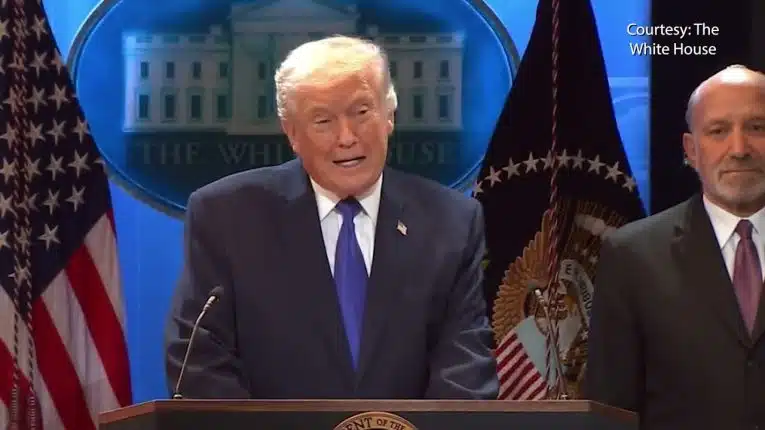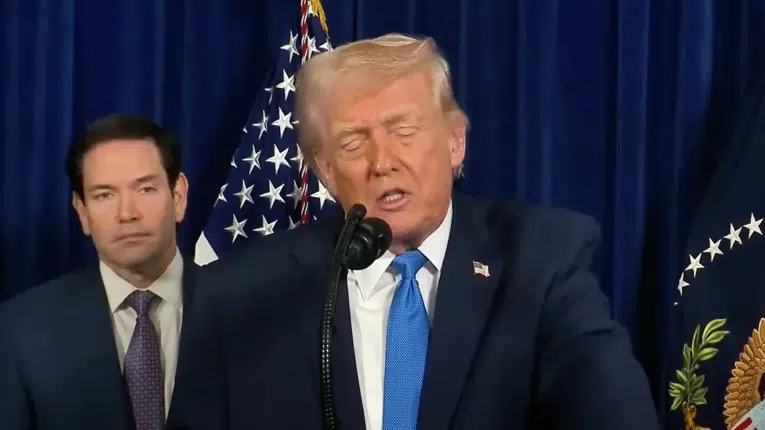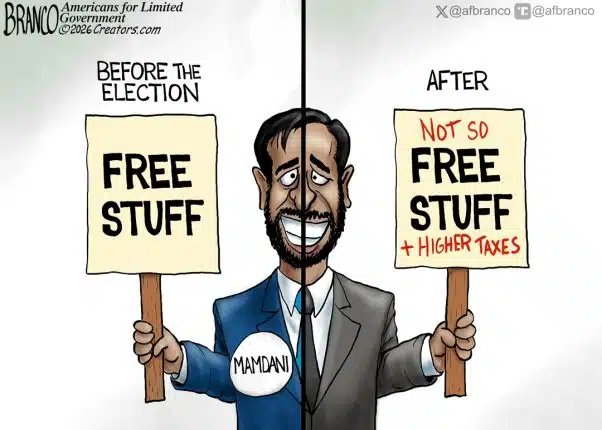Click here to urge Congress to stop the international Internet giveaway!
Another bombshell in the U.S. Department Commerce Department’s March 14 announcement that it intends to transition control over the Internet Assigned Numbers Authority (IANA) and the domain name system (DNS) to an as of yet unnamed international body: Commerce believes it can do so without any vote in Congress.
As revealed in the Wall Street Journal by L. Gordon Crovitz: “a spokesman for the Commerce Department’s National Telecommunications and Information Administration said the agency reviewed this legal issue and concluded the administration can act without Congress but refused to share a copy of the legal analysis.”
That, in itself, is breathtaking. It is one thing for a governmental agency to assert authority over this or that, and another entirely for it to refuse to furnish a valid rationale for doing so.
Crovitz explained the importance of the question over the need for congressional authorization: “The Property Clause of the Constitution says Congress must pass legislation to effect a transfer of government property. Arguably the president could no more transfer the valuable control over the naming and domains of the Internet than he could give Alaska back to Russia.”
To be certain, Article IV of the Constitution states, “The Congress shall have power to dispose of … property belonging to the United States.” But does that include the IANA?
If so, it means Congress does not have a moment to lose. After all, giving away this key authority in Internet governance to an international body or a private foundation may not only give away a key congressional prerogative and constitute an egregious overreach of executive power.
The transition will also sacrifice any First Amendment protections that Commerce Department’s current contract with the Internet Corporation of Assigned Names and Numbers (ICANN) currently affords to users of the Internet. If administration of IANA and/or DNS later resulted in censorship, there would be no recourse in federal court to challenge it.
Therefore, whether Congress must approve the transition is a key question that must be answered. On March 27, Americans for Limited Government filed a Freedom of Information Act (FOIA) request with the Commerce Department’s National Telecommunications and Information Administration (NTIA) requesting the legal basis for its plans to transition control over the Internet.
The FOIA request includes “All records relating to legal and policy analysis developed by or provided to the National Telecommunications and Information Administration (NTIA) that support its decision to ‘transition key internet domain name functions,’ including any analysis showing whether the NTIA has the legal authority to perform the transition.”
“The American people have a right to know why and on what legal basis, if any, the Commerce Department believes it has the power to transition control over key Internet domain name functions to an international body or to anyone else without a vote in Congress,” Americans for Limited Government President Nathan Mehrens stated.
At least one law professor has said there is actually nothing to legislate, reports Politico. “It’s not at all unusual that we’re starting this without Congress, because Congress really has nothing to say about it,” said Milton Mueller, a Syracuse University professor of Internet governance, adding, “this is not a legislative matter they control.”
So, does Congress need to sign off or not? If there is any case to be made, it would have to be as Crovitz stated, that the transition of IANA constitutes a transfer of government property.
Under the Commerce Department’s current contract with ICANN, which provides for the administration of the IANA on behalf of the U.S. Government, it states, “All deliverables under this contract become the property of the U.S. Government.”
Those deliverables include “technical requirements for each corresponding IANA function,” “performance standards in collaboration with all interested and affected parties … for each of the IANA functions,” and “a fully automated root zone management system … [that] must, at a minimum, include a secure (encrypted) system for customer communications; an automated provisioning protocol allowing customers to manage their interactions with the root zone management system; an online database of change requests and subsequent actions whereby each customer can see a record of their historic requests and maintain visibility into the progress of their current requests; and a test system, which customers can use to meet the technical requirements for a change request; an internal interface for secure communications between the IANA Functions Operator; the Administrator, and the Root Zone Maintainer,” among other items.
As for the IANA itself, that presumably reverts to the Commerce Department upon termination of the contract: “the Government may terminate the contract for default.” The contract even provides for the possibility of IANA being performed by another entity: “In the event the Government selects a successor contractor, the Contractor shall have a plan in place for transitioning each of the IANA functions to ensure an orderly transition while maintaining continuity and security of operations.”
After all, how can Commerce terminate the current contract or award it to somebody besides ICANN unless Commerce itself retains the contractual rights to administer the IANA?
Granting that the government does in fact retain the power to administer the IANA upon expiration of the current contract in September 2015, does that in itself constitute that the authority is government property requiring congressional authorization to transition? Under the contract parts of the IANA functions are clearly government property that might be hard to separate from the authority, but ultimately it is a question that might have to be answered, if not in Congress, then in federal court. Certainly, it is not a question that to date has been adequately answered by Commerce.
Meaning, unless members of Congress very soon assert that they have a role in approving the transition of this key area of Internet governance, it will simply be handed to some unspecified international agency accountable to no one when the current contract expires.
Robert Romano is the senior editor of Americans for Limited Government.


 By
By 



